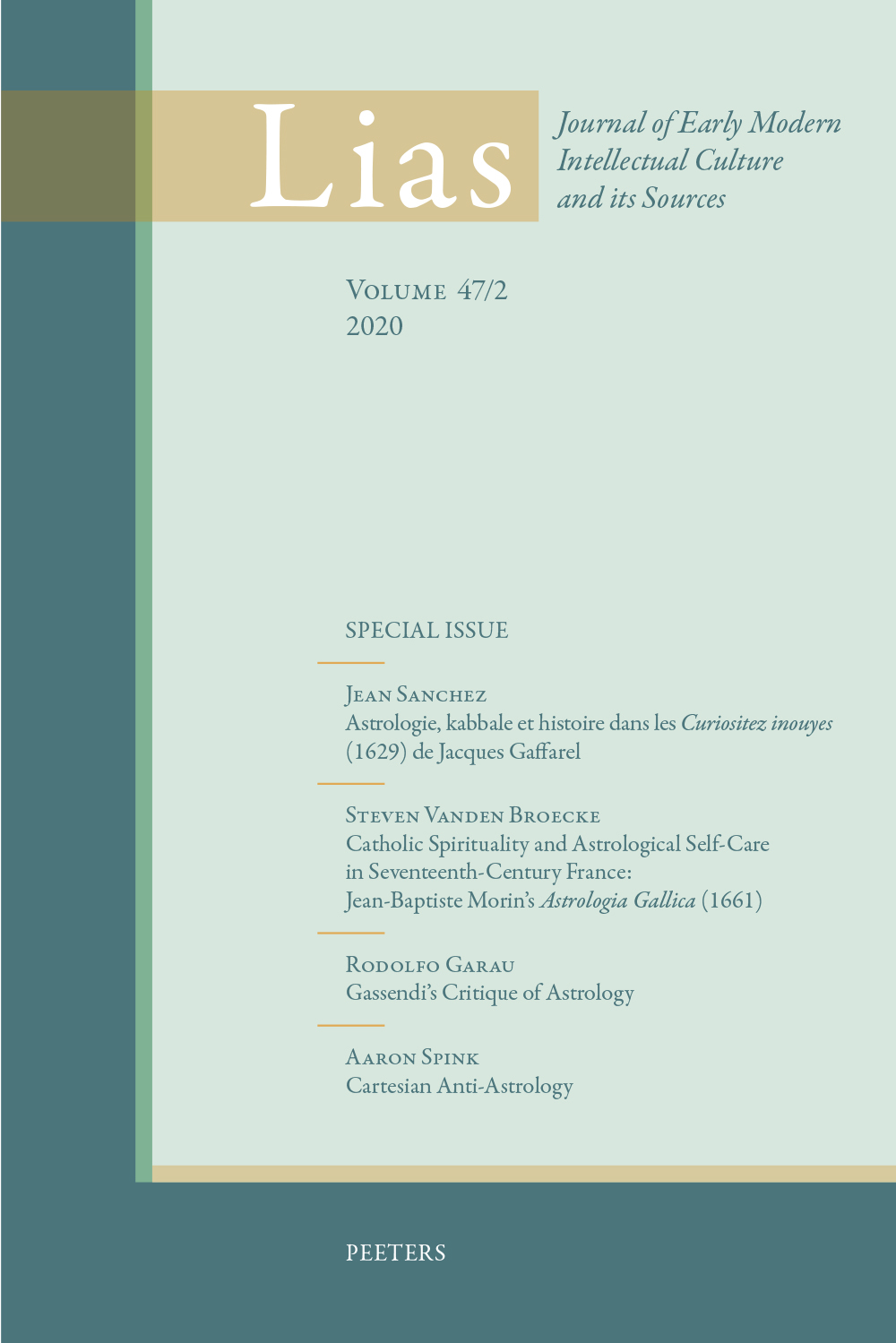 previous article in this issue previous article in this issue |

|
Document Details : Title: Characters against Type Subtitle: Conversion, Mise-en-Page, and Counter-Exegesis in a Seventeenth-Century Purim Play Author(s): WAMSLEY, Rachel Journal: Lias Volume: 44 Issue: 1 Date: 2017 Pages: 59-88 DOI: 10.2143/LIAS.44.1.3248501 Abstract : With the advent of print, the involvement of non-Jews in the production and transmission of Jewish books radically increased: rabbis entrusted their biblical commentaries to humanist master-printers; Christian Hebraists relied on learned Jewish correctors in the preparation of their Hebrew manuscripts for the press; baptised Jews copied, corrected, and censored Hebrew books. This cross-cultural cooperation in textual transmission – though sometimes fraught, uneasy, and even coercive – persisted well into the modern era, and resulted in untold artifacts crystallizing the unstable, ambivalent, and heterodox social currents which produced them. This essay considers one such artifact: a manuscript commissioned in 1697 by the Lutheran Rector Christof Wagenseil. The manuscript contains an obscene Yiddish Purim play, copied by Wagenseil’s research assistant, the recently baptised Jew Johan Kemper. Though this is a document hand-written precisely thanks to the obstacles to printing it, for only one intended reader, Kemper nevertheless decorates his title-page with all the trappings of a printed book: architectural motifs, a dedication to Wagenseil himself, and detailed colophon. He also maintains with utter seriousness the rhetorical gestures of early modern Jewish books. Yet as soon becomes strikingly clear, all this dogged conventionality is merely the satiric set-up for Kemper’s own Christian conversion story, told as an inside joke between Wagenseil and himself. Taken together, these ironic uses of convention cast a bright light on the nuance, idiosyncrasy, and unpredictability of Jewish textual transmission in the age of print. |
|
